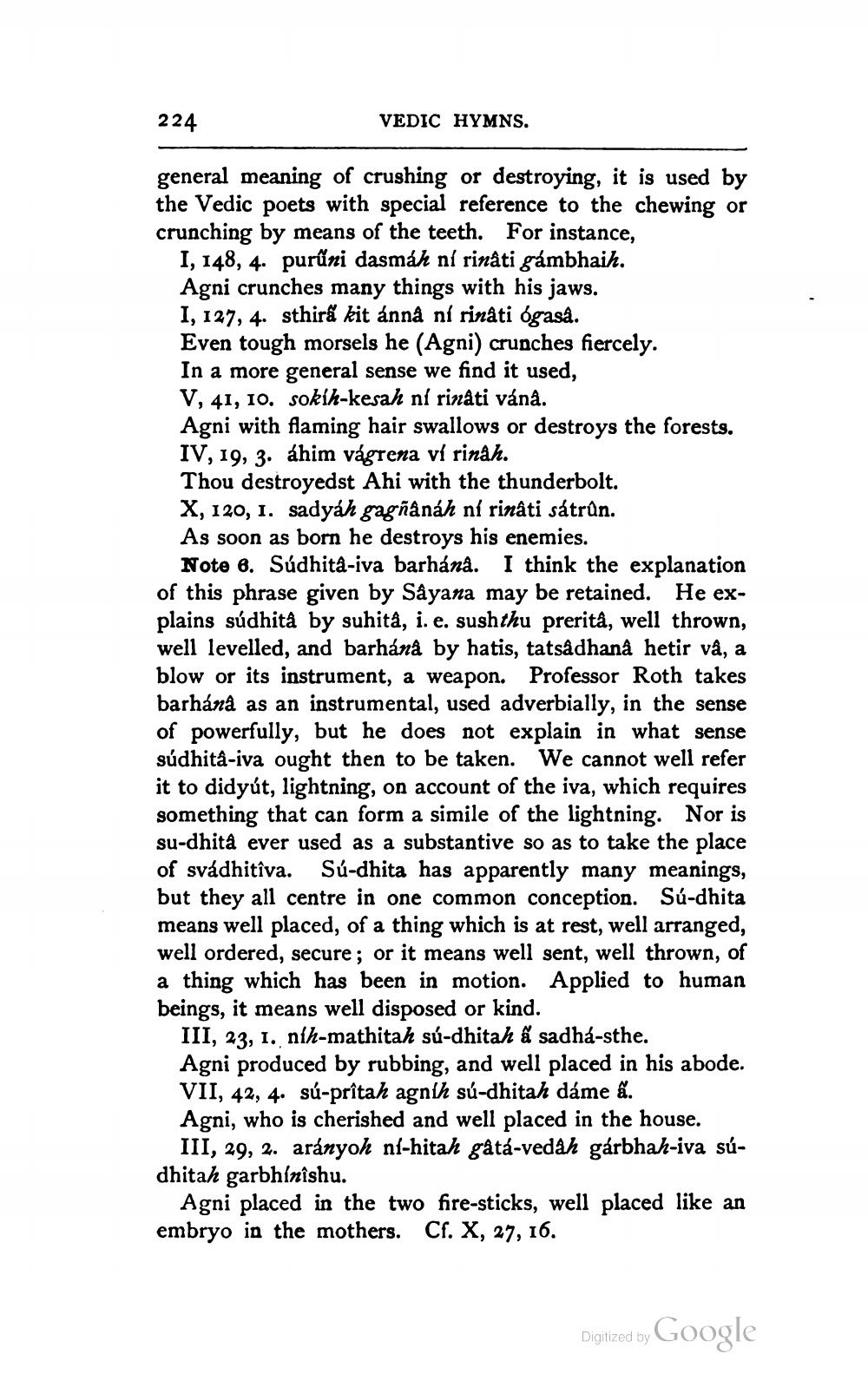________________
224
VEDIC HYMNS.
general meaning of crushing or destroying, it is used by the Vedic poets with special reference to the chewing or crunching by means of the teeth. For instance,
I, 148, 4. purűni dasmáh ni rinâti gámbhaih. Agni crunches many things with his jaws. I, 127, 4. sthirã kit ánnå ni rinkti bgasa. Even tough morsels he (Agni) crunches fiercely. In a more general sense we find it used, V, 41, 10. sokih-kesah ní rirati vána. Agni with flaming hair swallows or destroys the forests. IV, 19, 3. áhim vágrena vi rinah. Thou destroyedst Ahi with the thunderbolt. X, 120, 1. sadyah gagñânáh ni rinâti sátrún. As soon as born he destroys his enemies.
Note 6. Súdhita-iva barhána. I think the explanation of this phrase given by Sâyana may be retained. He explains súdhità by suhità, i. e. sushthu prerità, well thrown, well levelled, and barhána by hatis, tatsadhana hetir vå, a blow or its instrument, a weapon. Professor Roth takes barhána as an instrumental, used adverbially, in the sense of powerfully, but he does not explain in what sense súdhitâ-iva ought then to be taken. We cannot well refer it to didyút, lightning, on account of the iva, which requires something that can form a simile of the lightning. Nor is su-dhità ever used as a substantive so as to take the place of svadhitîva. Sú-dhita has apparently many meanings, but they all centre in one common conception. Sú-dhita means well placed, of a thing which is at rest, well arranged, well ordered, secure; or it means well sent, well thrown, of a thing which has been in motion. Applied to human beings, it means well disposed or kind.
III, 23, 1. nih-mathitah sú-dhitah å sadha-sthe. Agni produced by rubbing, and well placed in his abode. VII, 42, 4. sú-prîtah agníh sú-dhitah dáme ã. Agni, who is cherished and well placed in the house.
III, 29, 2. arányoh nl-hitah gåtá-vedah gárbhah-iva súdhitah garbhínîshu.
Agni placed in the two fire-sticks, well placed like an embryo in the mothers. Cf. X, 27, 16.
Digitized by
Digized by Google




